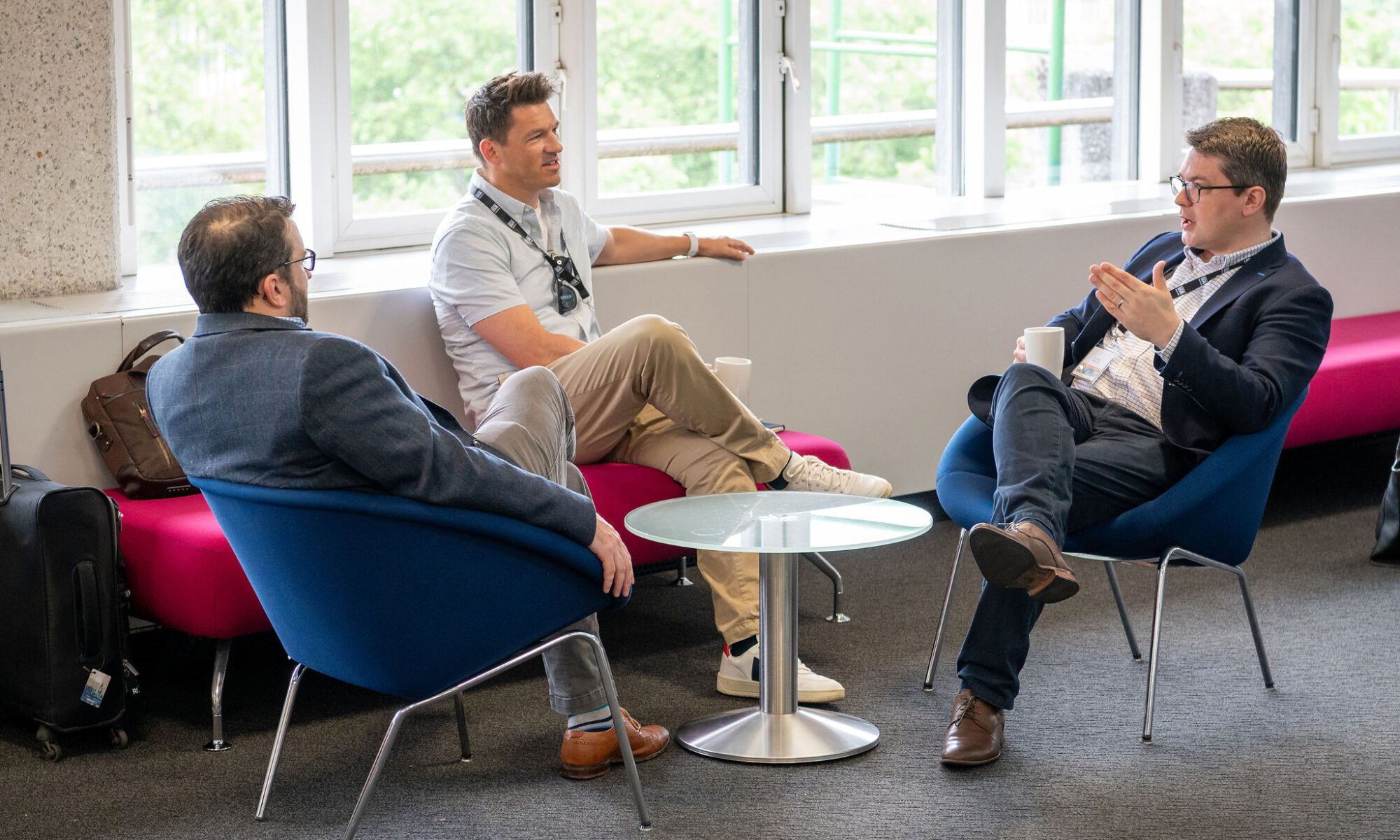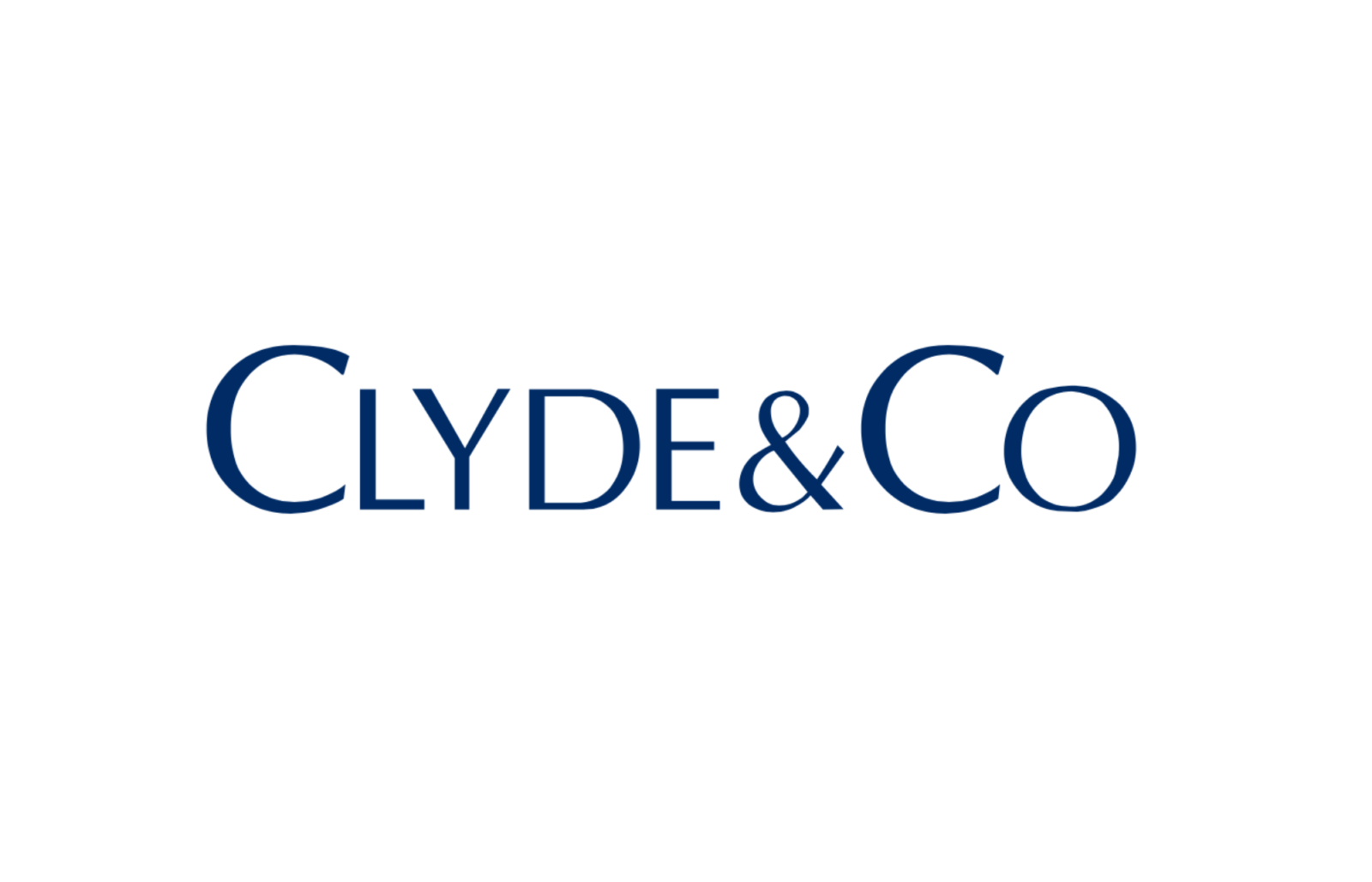Event Report
Heather Gagen, Head of ESG and Impact and Head of Dispute Resolution at Travers Smith, initiated the discussion by emphasising the significance of ESG principles and the critical role of ESG reporting and regulation. She highlighted the inherent complexity businesses face in navigating the primary challenges of environmental compliance, data protection, and sustainable change.
Panel 1: How can in-house lawyers navigate ESG challenges to drive sustainable business value
In the first session of the day, the panel explored how in-house lawyers can navigate ESG challenges to drive sustainable business value. Moderating the panel, Wynne Lawrence, climate risk and resilience partner at Clyde & Co, introduced a vital topic in framing the rest of the day’s discussions: what will the roles and challenges be for in-house counsel in the fast-moving ESG space and how can lawyers maximise emerging opportunities.
Quizzed on this developing legal landscape, Neil Dodds, General Counsel and Company Secretary at Arco, highlighted that the regulatory climate emerging through the Corporate Sustainability Due Diligence Directive seeks above all to bring out the authenticity and transparency that is at the heart of sustainability. Therefore, if general counsel take on a translational role, helping navigate legal opportunities to introduce sustainable value throughout a business’ operations, this can create an authentic and transparent internal ESG culture which makes finding your way through the framework easy.
Echoing this point and arguing for the importance of taking a proactive approach within in-house legal work, Matthew Gingell, General Counsel at Oxygen House Group, argued that we cannot simply measure our way out of the climate crisis, nor reach net zero with isolated sustainable businesses in an unsustainable world. Since businesses know their operations, suppliers, and clients, they must use their influence and help create environmental and social value that resonates throughout their market and the business community. When perceiving the evolving ESG landscape, companies should not set targets without missing the overall point: compliance is not an end in itself but rather a means to enable a culture built around climate.
Vinicius Diniz Vizzotto, Senior Legal Counsel ESG & Sustainability at ASML, agreed on the vital role of in-house counsel in building a pervasive ESG climate within an organisation. In-house counsel are vital in clarifying and connecting the dots between ESG strategy and day-to-day operations, helping translate legal terms into operational realities and determining how companies can best collaborate internally to create sustainable value. Vizzotto put it to the audience to reflect on how they can influence their company and stakeholders to have an impact on ESG, using the legal opportunities to lever discussions and impact lives.
John Mayes, Legal Director at Randstad UK, found a vital role for in-house counsel within this sense of business transformation. Often, lawyers not already at the beating heart of a company’s sustainability initiatives may struggle to break into that world and thus must take the first step and ask questions within the business. In-house lawyers can do far more than the typical job expected; using existing legal skills and the corporate experience of wearing whatever hat is necessary, in-house counsel must have a seat at a company’s sustainability table and stand up as a leader on the ESG journey.
Panel 2: Supply Chain and the Rise of Reporting and Disclosure
The event’s second panel was chaired by Michael Barlow, head of ESG at Burges Salmon, and heard the views of Catalina Fuentes-Benitez, legal advisor on ESG at easyJet; Christy Baker, general counsel at First Group; and Rebecca Danby, assistant general counsel, sustainability and ESG at Haleon, on supply chains and the rise of reporting and disclosure.
Barlow kicked off discussions by highlighting that most businesses in the UK either know their supply chain obligations and are struggling to comply, or do not know their obligations at all. He went on to comment that there is no ‘one size fits all’ when it comes to this, and each business must take a tailored approach. Yet the panel found that there were some common approaches at their organisations: supply chain disclosure strategy is set at top board level, and a separate group deals with implementing said strategy. Fuentes-Benitez highlighted that having separate groups responsible for reporting and disclosure obligations helps to ensure accountability internally.
Discussing the best way to engage with supply chain reporting and disclosure, the speakers all stressed the importance of engaging with different suppliers, asking them directly for the required data. Baker does this in the contractual stage, by adding an ESG clause to suppliers’ contracts, making certain supply chain reporting obligations mandatory. Danby and Fuentes-Benitez take a pre-contractual approach. Danby sets out expectations to suppliers in advance, having implemented a ‘carbon pricing’ factor, where carbon emissions will increase the price of a product, rendering it less appealing to the company. Benitez takes a targeted approach to each supplier depending on geography, risk level, and industry.
When questioned about the biggest challenges in this area, both the audience and the panellists agreed that data is of a particular concern. Fuentes-Benitez flagged that there is too much data to make sense of the information, hence businesses should try to only gather the data strictly necessary to conduct a proper due diligence of the supply chain. Danby agreed, adding that for many major businesses, the supply chain is simply too big to be able to cover it all, so businesses should know when to stop.
The panel concluded by underscoring the importance of planning ahead, especially with fast-developing new regulations. Baker reminded us that whilst this is a burden from a corporate perspective, it has an ultimate altruistic goal of improving people’s lives.
Panel 3: Protecting Directors and enhancing shareholder value: The ESG regulatory landscape – an opportunity or a hindrance?
The third panel, ‘Protecting Directors and enhancing shareholder value: The ESG regulatory landscape – an opportunity or a hindrance’, featured Fabia Welch Richards, a director within PwC’s Entity, Governance and Compliance team; Linda Thonen, a partner within PwC’s Legal Business Solutions Sustainability practice; Alison Horrocks, VP of Sustainability and Employer Reputation at Viasat; and Sheena Singla, general counsel and head of ESG at Logicor.
Welch Richards began by identifying some key trends the panel hoped to discuss, such as legal functions partnering with businesses, managing new risks for businesses between parent and subsidiary boards, and the opportunities arising from the changes brought about by the shift in the regulatory landscape with the introduction of legislation such as CSRD and CSDDD.
Thonen outlined how recognising the importance of ESG was crucial for long-term business success. She identified how the extra-territorial nature of sustainable regulation combined with the increased public scrutiny and exposure which the reporting requirements will bring has increased the pressure on companies and, as consequence, is driving change within businesses.
Horrocks spoke about how managing this change could be challenging when dealing with different cultures in large businesses. She mentioned that when dealing with parent and subsidiary boards it could be difficult to manage change holistically. Questions were raised as to whether top-down or bottom-up management was better in this context.
Singla drew attention to the question of implementation, highlighting how CSDDD implementation would be different for companies operating in different sectors. She emphasised that in-house lawyers shouldn’t merely look through a legal perspective and stressed the value of preparing early and getting everyone in the company involved, all the way to the top. Horrocks agreed, emphasising the importance of integrating ESG with HR and enterprise risk management.
Welch Richards turned to the global nature of compliance and how the lack of convergence between different pieces of legislation increased the risk exposure for companies. As an example, she mentioned that European reporting requirements could lead directors open to charges of greenwashing under UK legislation.
Thonen delineated the consequences for companies that fail to adhere, listing reputational harm, damage consumer trust and investor confidence, sanctions fines from regulatory bodies, and the risk of legal exposure to companies and directors. She emphasised the important role that boards play in the new regulatory landscape and stated that it wouldn’t be sufficient to use a discrete ESG committee, that boards needed to make sure they did their ESG homework. In Thonen’s opinion, this development was ultimately positive as it could lead to a new, more sustainable, outlook for directors and companies.
Welch Richards concluded that ‘integration’ and ‘cooperation’ had emerged as the two watchwords of the panel, and there was general agreement that the new legislation should be viewed as an opportunity rather than a burden.
Panel 4 : Managing the “E” in the ESG: The role of carbon accounting in an ESG strategy, its relevance for regulatory compliance, and for gaining a competitive edge.
In the fourth session of the day, Dr. Alexander Schmidt, head of science, sustainability & climate research at Normative, took a closer look at how to manage the ‘E’ of ESG, focusing on the role of carbon accounting in an ESG strategy, its relevance for regulatory compliance, and how it can serve as a competitive edge for businesses.
After engaging the audience on the extent to which they have witnessed a strong ESG strategy and greenhouse gas accounting practice within their company, Schmidt posed that companies seeking to focus on the ‘E’ must look across biodiversity, waste management, emissions, resource use, and managing emissions. Focusing his talk on how to manage your emissions, Schmidt took the audience through the key steps: companies must account for their emissions through an established framework or protocol as the crucial foundation of the journey; then, companies can align themselves with reporting standards and disclose their carbon footprint; finally, knowing where they stand as a business, companies can set a data-driven and realistic plan against which to reduce emissions.
Not only will carbon accounting be essential for global companies to meet the vast and often diverging requirements emerging from distinct and complex regulatory regimes – whether emerging from the EU, UK, or US, as key examples – it also provides actionable emissions insights that are the basis of a well-informed, transparent, and accountable ESG strategy. Most importantly, Schmidt highlighted that companies should take pride where, through improvements in data measuring and reporting best practice, they gain a fuller carbon insight and use this to engage with suppliers to support the entire value chain to reduce its emissions. Whether as an individual business or in engaging with the supply chain, while you may start from immature or incomplete data and have your carbon pathway altered when gaining the full picture, it remains most important to focus on the unchanged goal of a net-zero future.
Having this methodology and practice in place will be vital for companies to have a science-aligned approach to their green claims and consequently mitigate greenwashing risks. Exploring one such site of risk – making ‘carbon neutral’ claims from an over-reliance on carbon offsetting – Schmidt emphasised the importance of framing these not as a tool for footprint reduction, but as a beyond-value-chain investment into communities and biodiversity protection.
Schmidt concluded his address noting that ESG and carbon accounting are two key tools for businesses. Helping the audience translate his insights into easily digestible corporate value, a successful net-zero strategy can be a crucial business driver and help board rooms to access the immense market value – both at a consumer- and market-level – for companies which are veraciously pushing their own climate programme.
Panel 5: Are you being greenwashed? How to prepare your board
In the fifth session of the day, Ben Stansfield, Partner and Co-Chair of ESG at Gowling WLG, was joined by Dan Smith, Head of Advertising at Gowling WLG, and Eleanor Christie, Group Head of Risk, Corporate Governance, and Tax at Nando’s, to discuss the surging ESG topic of greenwashing. The conversation focused on upcoming anti-greenwashing regulations, EU directives, and strategies to avoid greenwashing allegations.
Stansfield opened the session by emphasising the growing importance of greenwashing considerations across multiple sectors. Although the term “greenwashing” was added to the dictionary only a few years ago, it has quickly become mainstream, spawning related terms such as greenhushing, greenlighting, and greenscamming. Regulatory bodies and market authorities are increasingly vigilant, targeting companies that make unsubstantiated sustainability claims.
Smith then steered the discussion by identifying three primary categories of greenwashing. The first involves making sustainability claims unsupported by evidence or based on inferences rather than solid proof. The second category involves exaggerated claims, often driven by marketing teams that stretch the truth, such as implying that using recycled fabric makes an entire business sustainable. The third type of greenwashing uses misleading language, with technically true claims that create a deceptive overall impression of environmental impact.
When discussing common mistakes businesses make in communicating their sustainability credentials, Smith highlighted several issues. These included unclear and misleading claims, such as stating that bottles are 100% recycled when this excludes the label and lid. Another common issue is focusing on minor positive aspects to give a misleading impression of the overall product. Smith also noted that businesses often make aspirational claims and misuse the term ‘sustainable’ without providing evidence to support their claims. According to Smith, misleading claims on sustainability can erode consumer trust and obscure genuinely sustainable businesses.
Echoing this, Eleanor Christie offered insights on how to avoid misinterpretation and ensure authenticity in communication with consumers. She emphasised the importance of clear and authentic communication, consistent with the statements made. Given that marketing language is inherently brief, it is easy to make claims that can be misinterpreted as greenwashing. It is consequently crucial, according to Christie and Smith, that lawyers get involved in the marketing campaign planning stages in order minimise the risk of greenwashing allegations.
The session concluded by underscoring the importance of regulatory awareness and the necessity for companies to substantiate their sustainability claims with concrete evidence. As the scrutiny from regulatory bodies intensifies, businesses must adopt transparent practices and avoid misleading representations to mitigate the risk of greenwashing allegations.
Panel 6: Social mobility and diversifying the workplace
In the sixth panel of the day, moderated by Amy Ulliot, editor at The Legal 500, Lisa Ardley-Price, managing legal counsel, NatWest Group; Raphael Mokades, founder and managing partner, Rare Recruitment; and Rachel Krys, equality & diversity consultant, The Bar Council, addressed the topic of social mobility and discussed ways to diversity the workplace, as well as some of the challenges to equality of opportunity.
When asked about the key requirements to ensure diversity as a recruiter, Ardley-Price highlighted the importance of making opportunities visible to people from different backgrounds and giving them equal platforms to get first-hand experience in their desired industry. When faced with the same question, Krys suggested taking a blind recruitment approach, creating a more unbiased recruitment process.
The panellists then underscored that retaining people is just as crucial as hiring them in the first place. According to Ardley-Price, simply listening to people is a vital tool for retention. By paying attention to what they are saying and acting on it, organisations can empower individuals to seek growth within the company.
When addressing the biggest barriers to inclusion, Mokades flagged that it is vital for organisations to have data, which can reveal different outcomes within the recruitment process of people from different backgrounds. Having available data saves time spent discussing what the facts are, allowing us to instead focus on the solutions.
Mokades also flagged three main areas of discrimination, often seen by major businesses: (1) unintended racism, for example, getting people mixed up simply because they are from the same ethnicity; (2) alcohol, which people can use as an excuse to get away with making discriminatory comments; and (3) affinity bias, causing people to give preferential treatment to those with similar backgrounds, interests, and beliefs. Often moving up the ladder is not based on merit, but on how well individuals connect with their supervisors, which in turn can be hugely affected by your background.
Finally, Ardley-Price concluded by asking us to challenge our own unconscious biases, especially as they are systemic. She also asked organisations to shine a light on both bad actions, so people learn not to repeat them, and on the good, which can serve as a positive example. The discussion ended with the expectation that people will hopefully learn that diverse teams, composed of various thoughts and backgrounds, lead to better outcomes as we shed our negative habits.
Panel 7: A New Era of Corporate Responsibility: The Human and Social Dynamics of Sustainable Business
The seventh session of the day was a conversation between Tracey Groves, head of sustainable business & ESG at DWF; Nadine Robinson, ESG & sustainability director at DWF; and Kirsty Rogers, global head of ESG at DWF, who proposed a new era of corporate responsibility, pointing to the human and social dynamics of sustainable business.
The speakers focused their discussion on how sustainable business transformation and long-term value creation requires a people-led approach, referencing the firm’s recent and groundbreaking ‘True Diligence’ report. The report was based on opinion research amongst 1,200 C-suite leaders from companies based in France, Germany, Italy, Poland, Spain, and the UK with a minimum global turnover of €150 million.
The panellists suggested that a human and social focus to sustainable business and ESG will maximise impact and optimise risk resilience. They drew attention to the human and social elements of sustainability, such as culture, ethical behaviours, human rights, equality and inclusion, and urged the audience to consider these as critical and fundamental success factors to address ESG and sustainability-related regulation with integrity.
The session also shone a light on how people and planet are intertwined and lie at the heart of the EU Corporate Sustainability Due Diligence Directive, and what this means for businesses, inside and outside of the EU.
Panel 8: Litigation, Reputation Management, and ESG Challenges
The eighth panel of the evening featured experts from legal and PR backgrounds discussing the complexities of ESG litigation, reputational damage and risk mitigation strategies.
Moderator Heather Gagen, partner and head of Travers Smith’s Dispute Resolution practice and ESG and Impact Group, kicked off the discussion, pointing out that in many cases, claims are driven by strategic objectives and often originate from foreign jurisdictions, raising concerns about the impact of dealing with these allegations in the context of UK courts.
According to Geraint Webb, barrister at Henderson Chambers, this is a reality that many corporate entities are grappling with, and with the rising concern of ESG issues, it is an issue that is only set to grow – especially in the areas of tort and reputational damage.
Clive Coleman, senior Partner of Maltin PR and former Legal Correspondent of the BBC, emphasised the complexities of managing these high-profile litigation claims, highlighting that ESG discourse attracts significant media attention, making reputational damage a critical concern.
Gagen then queried the panel about current ESG regulations and emerging issues, and Geraint took the floor, referencing cases such as Chandler v Cope and Begum v Maran to illustrate the trend of foreign claims dealt with in UK courts.
Stepping in to shed further light on the matter, Webb discussed the issue of foreign law and the complexities of its application to our courts, speaking about how the difference in legal and operational standards in each country make ESG claims increasingly difficult to handle. Gagen then highlighted the challenges posed by the scale and value of ESG claims, along with their historical context, stressing the significance of how companies assess the risks of past claims, respond to them and move forward with a strategic approach – especially when set against a reputational backdrop.
When dealing with said claims, Clive Coleman called attention to the importance of swift PR responses to litigation, describing it as an “information war”, arguing that companies must act quickly to manage public opinion. Webb agreed, noting that the significant risk of ESG stories is the extent to which they capture the public imagination and the rate at which they evolve and have the tendency to gain a life of their own.
Thankfully, Colman added, often corporate entities know in advance that there’s an issue to deal with – and, sometimes, they have known it for years, providing the opportunity to take control of the narrative, investigate it, take steps to change and address these claims.
Gagen concluded the panel by outlining practical steps for companies to mitigate ESG risks. She advocated for a comprehensive corporate strategy on ESG issues, emphasising early detection and proactive measures to address potential claims before they escalate.
Concluding Remarks
After closing remarks by Heather Gagen on behalf of Travers Smith, reflecting on the huge opportunity that compliance brings for lawyers to bring purpose and impact within the business community, attendees continued to pose insightful questions and explore emerging topics over drinks and canapes.







